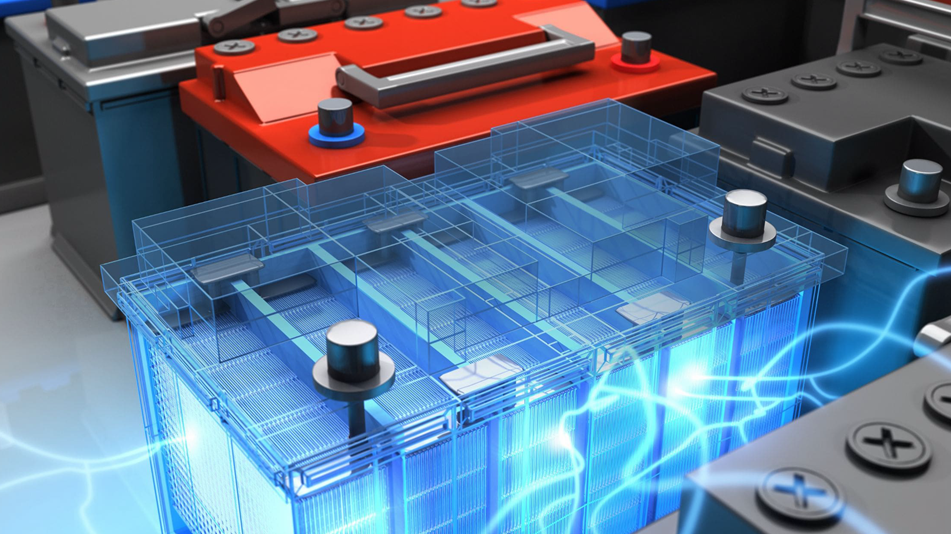The Advantages and Limitations of Lithium Batteries
Lithium batteries have become increasingly popular in recent years due to their high energy density, long lifespan, and relatively low self-discharge rate. However, like any technology, they also have their limitations and drawbacks. In this article, we will explore the advantages and limitations of lithium batteries.
Advantages of Lithium Batteries
1. High Energy Density: Lithium batteries have a high energy density, which means they can store a lot of energy in a relatively small size. This makes them ideal for use in portable electronic devices like smartphones, laptops, and tablets.
2. Long Lifespan: Lithium batteries have a longer lifespan compared to other types of batteries. They can be charged and discharged hundreds of times without losing their capacity. This makes them a cost-effective option in the long run.
3. Low Self-Discharge Rate: Lithium batteries have a low self-discharge rate, which means they can retain their charge for a long time without being used. This makes them a good option for emergency backup power.
4. Fast Charging: Lithium batteries can be charged quickly, which is a significant advantage for portable devices that need to be charged frequently.
5. Environmentally Friendly: Lithium batteries are more environmentally friendly compared to other types of batteries. They do not contain toxic materials like lead and cadmium, which can harm the environment.
Limitations of Lithium Batteries
1. High Cost: Lithium batteries are more expensive compared to other types of batteries. This is due to the high cost of materials used to manufacture them.
2. Risk of Overheating: Lithium batteries can overheat if they are not charged correctly. This can lead to a risk of fire or explosion. This is why it is essential to use the correct charger and follow the manufacturer’s instructions.
3. Limited Temperature Range: Lithium batteries have a limited temperature range. They perform best in a temperature range of 15-35 degrees Celsius. If exposed to extreme temperatures, their performance may suffer.

4. Limited Shelf Life: Lithium batteries have a limited shelf life. They can lose their capacity even when not in use. This means that they need to be replaced after a certain period, even if they have not been used.
5. Recycling Challenges: Lithium batteries are difficult to recycle, which can result in environmental problems. It is essential to dispose of them properly to avoid harm to the environment.
Conclusion
In conclusion, lithium batteries have many advantages that make them an attractive option for portable electronic devices. They have a high energy density, long lifespan, low self-discharge rate, and fast charging time. However, they also have limitations that need to be considered, such as high cost, risk of overheating, limited temperature range, limited shelf life, and recycling challenges. To get the most out of lithium batteries, it is essential to use them correctly, follow the manufacturer’s instructions, and dispose of them properly.
-
 Are you tired of constantly having to replace your car battery or other power source? Do you want a longer-lasting and more reliable energy solution? Look no further than the 12V 100Ah Lithium Battery LifePO4. This lithium battery is the perfect power source for a variety of applications, from cars and boats to solar energy storage systems and off-grid...Read more
Are you tired of constantly having to replace your car battery or other power source? Do you want a longer-lasting and more reliable energy solution? Look no further than the 12V 100Ah Lithium Battery LifePO4. This lithium battery is the perfect power source for a variety of applications, from cars and boats to solar energy storage systems and off-grid...Read more -
 Introduction With the increasing demand for renewable energy sources, the need for efficient and reliable energy storage technology has become crucial. Energy storage systems play a vital role in managing the intermittent nature of renewable energy sources such as solar and wind power. In recent years, lithium batteries have emerged as a promising solution for energy storage in power...Read more
Introduction With the increasing demand for renewable energy sources, the need for efficient and reliable energy storage technology has become crucial. Energy storage systems play a vital role in managing the intermittent nature of renewable energy sources such as solar and wind power. In recent years, lithium batteries have emerged as a promising solution for energy storage in power...Read more -
 In today\'s world, power supply is an essential part of our lives. Whether we are using electronic devices at home or in our offices or working in remote areas, we need a reliable source of power that can provide long-lasting support. This is where the LiFePO4 battery comes into play. It is a highly efficient and reliable battery that can...Read more
In today\'s world, power supply is an essential part of our lives. Whether we are using electronic devices at home or in our offices or working in remote areas, we need a reliable source of power that can provide long-lasting support. This is where the LiFePO4 battery comes into play. It is a highly efficient and reliable battery that can...Read more -
 The rated capacity of a starter battery indicates the amount of energy that the battery can store and deliver to start a vehicle\'s engine. This capacity is typically measured in ampere-hours (Ah) and indicates the amount of current that the battery can provide over a specific period of time. When selecting a starter battery, it is important to choose...Read more
The rated capacity of a starter battery indicates the amount of energy that the battery can store and deliver to start a vehicle\'s engine. This capacity is typically measured in ampere-hours (Ah) and indicates the amount of current that the battery can provide over a specific period of time. When selecting a starter battery, it is important to choose...Read more -
 As a motorcycle owner, you know that having a reliable battery is essential to keeping your bike running smoothly and efficiently. With so many battery options on the market, it can be difficult to decide which one to choose. However, one type of battery that has been gaining popularity among motorcycle enthusiasts is the LiFePO4 battery. LiFePO4 is short...Read more
As a motorcycle owner, you know that having a reliable battery is essential to keeping your bike running smoothly and efficiently. With so many battery options on the market, it can be difficult to decide which one to choose. However, one type of battery that has been gaining popularity among motorcycle enthusiasts is the LiFePO4 battery. LiFePO4 is short...Read more -
 In recent years, there has been a significant increase in the use of mobile robots across various industries and sectors. These robots are designed to perform tasks autonomously, without the need for human intervention. One crucial component that powers these robots and enables them to operate for extended periods is the lithium-ion battery. Lithium-ion batteries have revolutionized the field...Read more
In recent years, there has been a significant increase in the use of mobile robots across various industries and sectors. These robots are designed to perform tasks autonomously, without the need for human intervention. One crucial component that powers these robots and enables them to operate for extended periods is the lithium-ion battery. Lithium-ion batteries have revolutionized the field...Read more -
 As the global population continues to grow, so does the demand for electricity. In today's modern world, it's essential to have a reliable and efficient power grid system. This is where smart grids come into play, revolutionizing the way we generate, distribute, and consume electricity. At the heart of this transformation lies the power of lithium batteries. Lithium batteries...Read more
As the global population continues to grow, so does the demand for electricity. In today's modern world, it's essential to have a reliable and efficient power grid system. This is where smart grids come into play, revolutionizing the way we generate, distribute, and consume electricity. At the heart of this transformation lies the power of lithium batteries. Lithium batteries...Read more

